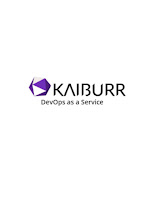In today's fast-paced tech landscape, ensuring robust security while maintaining agile development processes is crucial. This is where DevSecOps governance comes into play. As businesses strive to integrate security within their DevOps practices, understanding the role of governance in this context becomes essential. In this post, we’ll explore what DevSecOps governance is and how it enhances your DevOps value proposition, offering insights that can help organizations leverage these practices for improved efficiency and security.
What is DevSecOps Governance?
Integration of Security in DevOps: DevSecOps governance involves incorporating security practices directly into the DevOps pipeline. It emphasizes the need to ensure that security measures are not just an afterthought but an integral part of the development process.
Continuous Monitoring and Compliance: Effective governance ensures that security policies and compliance requirements are continuously monitored and adhered to throughout the software development lifecycle.
Automated Security Checks: Governance frameworks often include automated security checks and balances to quickly identify and mitigate vulnerabilities during the development process.
Why is DevSecOps Governance Important?
Risk Mitigation: By integrating security from the beginning, organizations can identify potential threats early and mitigate risks before they escalate.
Faster Time-to-Market: Governance helps streamline security processes, allowing development teams to focus on innovation and delivery without sacrificing security.
Regulatory Compliance: Ensuring adherence to regulatory standards is a crucial aspect of governance, helping organizations avoid legal issues and penalties.
How DevSecOps Governance Enhances Your DevOps Value Proposition
Improved Security Posture: DevSecOps governance ensures that security is embedded in every phase of the development process. This holistic approach enhances the overall security posture of the organization.
Enhanced Efficiency: By automating security checks and integrating them into the DevOps pipeline, governance frameworks reduce manual effort and improve operational efficiency.
Increased Trust and Reliability: Organizations that prioritize security through effective governance build trust with stakeholders and customers, enhancing their reputation and reliability.
Better Risk Management: Continuous monitoring and integration of security measures help in identifying and managing risks proactively, reducing the likelihood of security breaches.
Implementing DevSecOps Governance: Key Strategies
Define Clear Policies and Procedures: Establish clear security policies and procedures that align with your organization’s goals and regulatory requirements. This forms the foundation of effective governance.
Integrate Security Tools: Utilize security tools and technologies that can be seamlessly integrated into your DevOps pipeline. Automated security testing and vulnerability scanning tools are essential components.
Foster a Security-Centric Culture: Promote a culture of security awareness within your development teams. Regular training and updates on security practices can help in maintaining a proactive approach.
Continuous Feedback and Improvement: Implement mechanisms for continuous feedback and improvement. Regularly review and update security practices to address emerging threats and vulnerabilities.
Challenges and Solutions in DevSecOps Governance
Challenge: Balancing Speed and Security: One of the primary challenges is balancing the need for rapid development with the necessity for robust security measures.
Solution: Implement automated security checks and integrate them into the CI/CD pipeline to maintain speed without compromising security.Challenge: Complexity in Integration: Integrating security practices into existing DevOps processes can be complex and require significant changes.
Solution: Start with incremental changes and gradually integrate security practices into your DevOps workflow. This phased approach can ease the transition and reduce disruption.Challenge: Keeping Up with Evolving Threats: The threat landscape is constantly evolving, making it challenging to stay ahead of potential risks.
Solution: Adopt a proactive approach to threat management by regularly updating security practices and leveraging threat intelligence to stay informed about emerging risks.
Conclusion
DevSecOps governance is a critical component for organizations seeking to enhance their DevOps value proposition. By embedding security into every stage of the development lifecycle, organizations can achieve a robust security posture, improved efficiency, and better risk management. Implementing effective governance strategies not only mitigates risks but also supports faster time-to-market and compliance with regulatory standards. As businesses continue to evolve, integrating DevSecOps governance will play a pivotal role in achieving long-term success and maintaining a competitive edge in the industry.
For more insights on optimizing your DevOps practices and implementing effective governance strategies, visit Kaiburr Science.



.jpg)




0 Comments